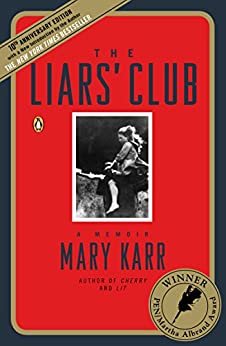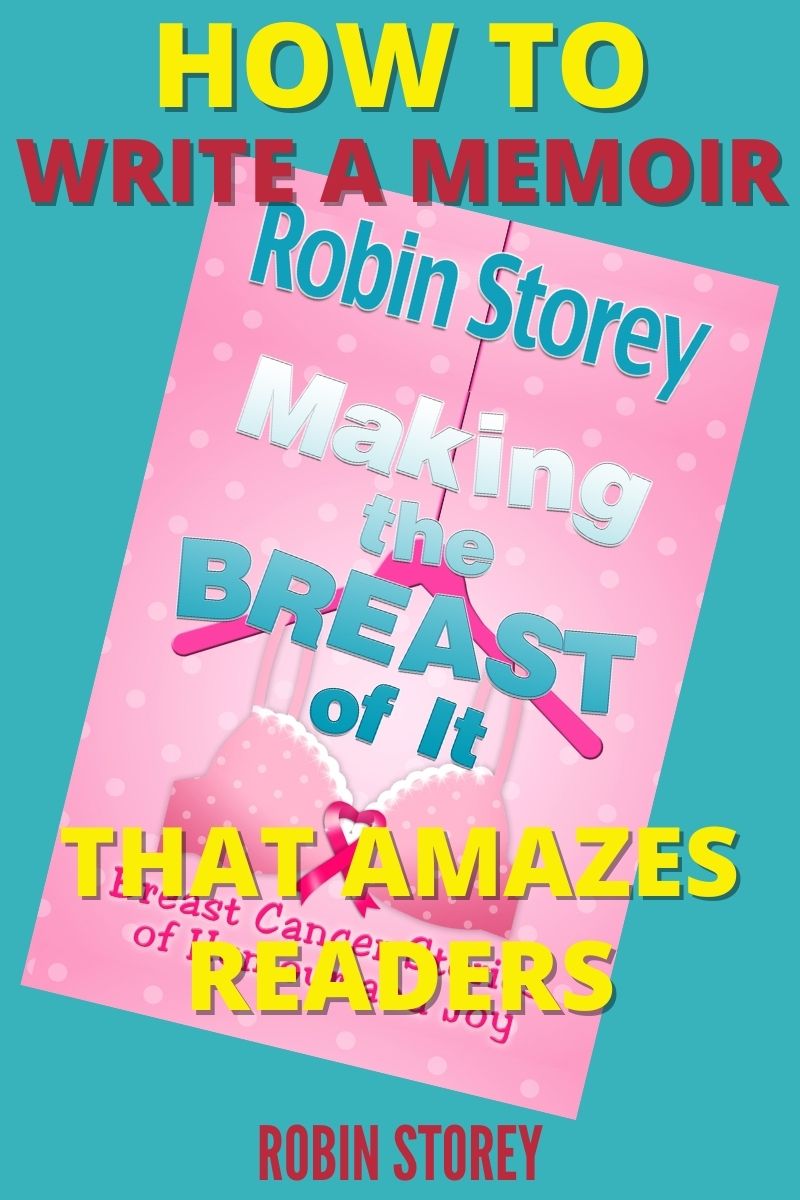So how do you write a memoir that amazes readers?
Well, it's not easy, and sometimes it's not even a lot of fun, but it can be extremely rewarding, and in this post I'm going to show you exactly how to do it.
What Is A Memoir?
I’ve often heard people say, ‘One day I’m going to write my memoir.’
What they usually mean is they’re going to write the story of their life, which is actually their autobiography.
Many people, including those in the writing profession who should know better, use the words autobiography and memoir interchangeably.
But they are different.
A memoir is written about a particular period of your life, for example, an adventure you went on or a hardship you overcame.
There’s no limit to the time – it can be days, months or years. But it’s only a slice of your life.
For example, the book in this post's cover image is my own memoir about breast cancer.
What Is An Autobiography?
An autobiography, on the other hand, is about your whole life, from the day you were born to the present, although there may be bits you skip for a variety of reasons.
And there could be a number of topics or themes.
Famous Memoirs
Some famous examples of memoirs are:
Writing A Memoir - Where Do I Start
How do you go about writing a memoir? It can be daunting not knowing where to start, particularly if this is your first book. Before you even start writing, I advise you to:
Do Some Planning
It will be a lot easier to write it if you do some planning before you even put pen to paper, or hand to keyboard.
Know Your Theme
Writing a memoir is like writing any other sort of book, in that you need to know your theme, and the shape of the story – ie the beginning, middle and end.
The theme is the idea behind the story; or what you want your readers to take away from it.
For example, one theme could be that going outside your comfort zone is hard, but it’s always worth it in the long run.
Or: no matter how bad things get, there’s always something to be grateful for. Or something as simple as love is the reason for living.
Elements Of Good Fiction
A memoir, even though it is fact, still needs to contain all the elements of a good fiction story. So you need to know where and how it starts and ends and what the climax is.
Making a list of the main events that make up the story will help you to do this.
Think About Your Characters
Now think about the characters in your memoir, starting with yourself.
Make some notes about how you changed and developed during the story, what you learned about life and yourself.
Readers want to be able to relate to you and feel empathy with you, and perhaps learn from your experiences.
Now make a list of the other people who will play a major part in your story. Do any of them change and grow as well?
How will you show that? How will you write about them, so they come across as authentic people to the reader?
Now your story is looking like it has a shape. The next step is :
Start Writing
Your creative process will be strongest if you relax your mind and just write whatever comes into it.
Get That First Draft Down
Don’t edit yourself as you write, just get the words down as they occur to you.
This isn’t easy if you’re a beginner, because you don’t always have confidence in your ability. But the more you write, the more confident you become.
Let It Rest
When you’ve finished, put your story away for at least a couple of weeks so you can come back to it with fresh eyes; you’ll be more likely to pick up errors and see the flaws in the storytelling process.
Rewrite And Edit
When you come back to your story, read it all the way through, as if you are a stranger reading it for the first time.
There will be parts that jump out at you that need fixing – It may be whole chapters or just a few paragraphs here and there. As you read it:
Ask These Questions
Is the theme clear? Have you strayed off the theme anywhere and included irrelevant events?
Does the story keep your interest all the way through? Are there places where it drags or you get bored?
Do the characters, (including yourself as the main character) feel authentic and real? Are they well-rounded, so the reader is aware of their flaws as well as their strengths?
Is there just enough description to bring the story to life, without slowing down the pace?Show Don't Tell
Have you gone overboard in portraying emotion?
Less is more when it comes to emotion, remember ‘actions speak louder than words.’
‘John sat in his chair day after day, unshaven and glassy-eyed, staring out the window,’ is more evocative than writing, ‘John was depressed.’
Is there a satisfactory resolution?Obtain A Professional Edit
If you’re having trouble working out how to improve your story, it’s a good idea to have it professionally critiqued if you can.
A developmental edit is good way to go about it and there will be an association of editors in your city or state that you can contact to find a suitable editor.
Proofread
Proofreading is the final step; making sure the spelling, punctuation and grammar is correct.
Again it is preferable to employ a professional proofreader, but if you can’t afford it, find someone with a good knowledge of the English language to review it and mark the errors.
Publish Your Memoir
Now your story is ready to send out into the world. There are three ways you can publish:
Traditional publishing, where a publisher accepts your manuscript and publishes and distributes it for you, taking on all the costs involved.
Partner publishing, where the publisher requires you to contribute to the cost of publishing your book
Self-publishing, where, as the name suggests, you take on the full responsibility and cost of publishing and distributing your book.What's The Best Way To Publish?
Which is preferable? Suffice to say, it’s extremely difficult to get a traditional publishing contract, as there is so much competition.
You need to have an extremely well-written book on a topic that the publisher considers will have commercial appeal.
Partner publishing or self-publishing may be more preferable, depending on what you want to achieve with your book. But there are pitfalls here too for the unwary.
Publishing options is a topic worthy of a blog post on its own, so stay tuned for one in the near futureMemoir Writing Service
It all sounds like a lot of work, right? You might be thinking, ‘ I really want to tell my story, but I don’t have the time or energy to do all those things.’
If that’s the case, I can help you. I can write your entire story for you, in your voice. All you have to do is tell it to me. Have a look at my ghostwriting page where I go into detail about the services I offer.Memoir Writing Course
You may be keen to write your memoir yourself but feel that you need some tuition and guidance first.
I can thoroughly recommend author Leeza Baric’s Memory to Memoir e-course.
I don’t get any financial kickback if you sign up for this course, I’m recommending it because it’s a comprehensive course which takes you from planning your story, through writing and editing it to publishing.
The modules, a combination of video, audio and text, are simply and clearly written in Leeza’s warm and engaging style.
How To Write A Memoir Conclusion
There's not much more to say actually.
You’ve got all the information now for writing a memoir that will amaze your readers, so there’s no excuse for not starting.
Stop procrastinating and get to it!
I look forward to seeing your book the next time I visit the local bookshop.
Book a Free, No-Obligation Consultation Today!
Click the button below to find out more about having your story ghostwritten and to book an appointment with me.






